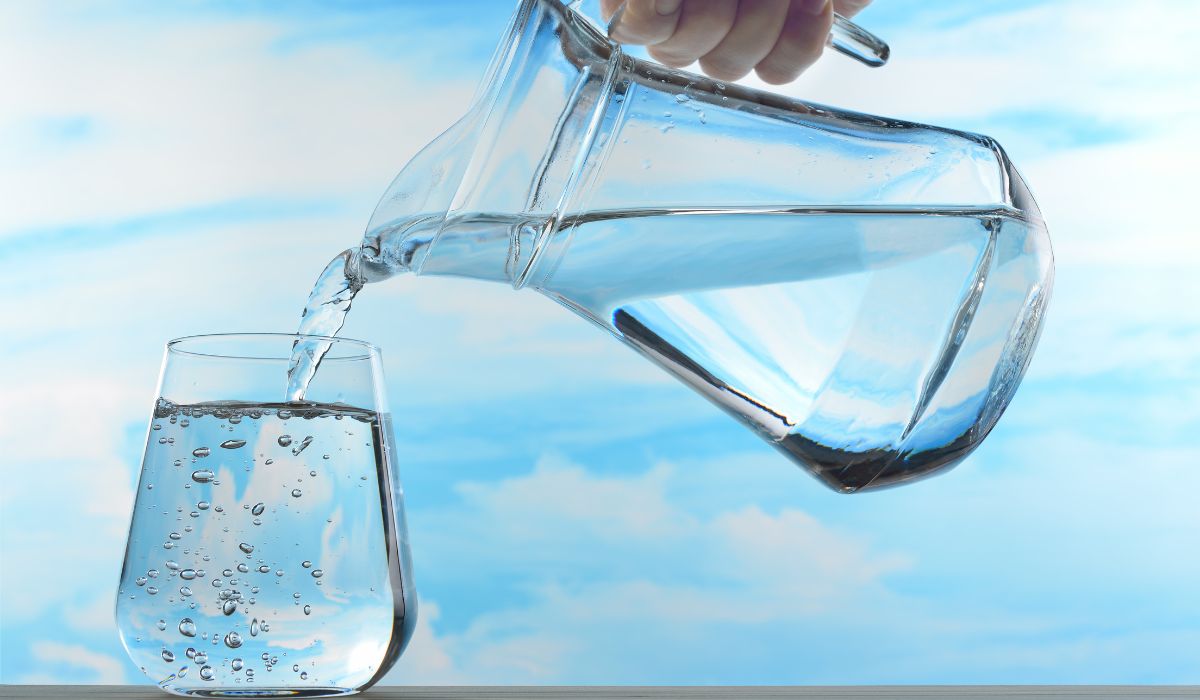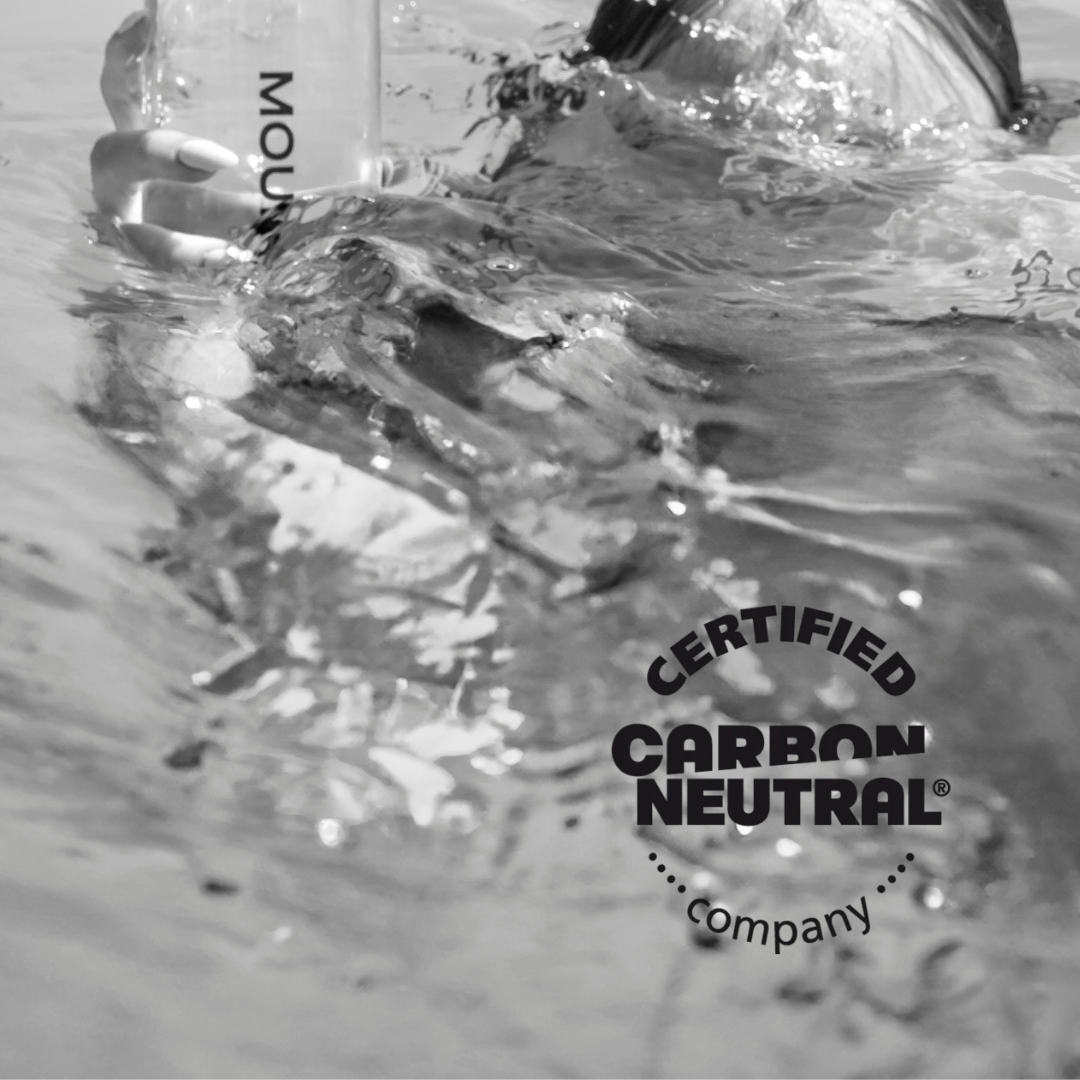In the heart of Cape Town, amidst the rich landscapes and vibrant culture, the quest for the purest form of hydration is a journey we're all on. While purified water is often touted as the pinnacle of clean drinking water, it's essential to delve deeper into what truly constitutes the healthiest and most beneficial water for our bodies.
At Mountain Falls Mineral Water, we've embarked on this exploration, uncovering the reasons why mineral water, especially from pristine sources like ours, surpasses purified water in every aspect. Join us as we unravel the facts, debunk common myths, and shine a light on the unparalleled benefits of mineral water.
Key Takeaways
- Purified Water Defined: Purified water undergoes extensive purification, including reverse osmosis, distillation, and deionisation, ensuring high purity by removing impurities, chemicals, and contaminants. It meets rigorous health standards, offering a safe and clean hydration option.
- Mineral Water's Natural Benefits: Sourced from beneath the earth, mineral water retains essential minerals like calcium, magnesium, and sodium, contributing to heart health and blood pressure management. Its natural filtration through mineral-rich layers makes it rich in beneficial minerals and offers a unique, refreshing taste.
- Health Advantages of Mineral Water: Studies show mineral water, rich in sodium and magnesium, can improve cardiovascular health by increasing good cholesterol and decreasing blood pressure, making it a valuable addition to a healthy lifestyle.
- Advantages of Purified Water: Its purification process results in improved taste and odor, removing contaminants that may still exist in tap water. Purified water reduces the risk of waterborne diseases and chemical exposure, emphasising its role in promoting overall well-being.
- Water Purification Methods Explained: Various technologies such as distillation, reverse osmosis, ion exchange, carbon filtration, and UV sterilisation enhance water safety and quality, with each method catering to different contaminants and purity levels.
- Choosing Between Purified and Mineral Water: The choice depends on personal health needs and concerns; mineral water offers natural minerals and health benefits, while purified water provides a high purity level, free from contaminants.
What is Purified Water?
When we're exploring the vast landscape of hydration options, purified water stands out for its purity and the extensive process it undergoes to achieve it. Let's dive deeper into what makes purified water a noteworthy choice for our daily consumption.
Definition of Purified Water
At its core, purified water represents water that has undergone a robust purification process to remove impurities such as chemicals, contaminants, and other harmful substances. This stringent process ensures that the water we drink is of significantly higher purity compared to spring water, tap water, or filtered water. It's essential to understand that purified water isn't just about what's removed; it's about achieving a level of purity that sets new standards for what we consider safe drinking water. By meeting or exceeding strict health and safety standards, purified water offers us peace of mind with every sip.
Purification Process
The journey to transform water into purified water is fascinating and involves multiple stages. These stages include, but are not limited to, reverse osmosis, distillation, and deionization. Each method plays a critical role in stripping away various impurities, from bacteria and parasites to heavy metals like copper and lead, and even chemical pollutants.
Reverse osmosis pushes water through a semi-permeable membrane, catching impurities on one side while allowing pure water to pass through. Distillation heats water until it vaporizes, leaving impurities behind, and then condenses the steam back into liquid water. Deionization, meanwhile, uses ion exchange processes to remove mineral ions from water. Together, these methods ensure that purified water meets rigorous purity standards, with impurity loads of dissolved solids not exceeding 10 parts per million.
It's this intricate purification process that distinguishes purified water from its counterparts. We're not just filtering out the visible or tangible; we're targeting microscopic threats and removing them to create a product that's safe, clean, and refreshing. Through these methods, we're able to enjoy water that's not only fit for consumption but holds the promise of contributing positively to our overall well-being and health.
What is Mineral Water?
Definition of Mineral Water
Mineral water is a unique type of water that's packed with natural minerals and trace elements. Unlike purified water, which undergoes processes to remove impurities and minerals, mineral water retains its mineral content. These minerals, including calcium, magnesium, and sodium, are all naturally present and offer various health benefits. Mineral water boasts a perfectly balanced pH of about 7, making it not only safe for consumption but also beneficial to our health. The distinct taste of mineral water is often attributed to its rich mineral content, accumulated over millions of years deep within the earth's surface.
Where Our Mineral Water Is Sourced From
The journey of our mineral water begins deep within the earth. Over 150 million years, water seeps through mineral-rich layers, dissolving essential minerals along its path before emerging at the source. This natural filtration process enriches the water with a unique blend of minerals:
| Mineral | Amount (mg/L) |
|---|---|
| Calcium | 14 |
| Magnesium | 11 |
| Sodium | 85 |
| Iron | 0.4 |
| Chloride | 105 |
| Fluorine Halogen | 0.4 |
| Total Dissolved Solids | 345 |
Our mineral water is sourced with the utmost care to preserve its natural purity and mineral content, ensuring every sip offers the full range of health benefits and the unparalleled taste that nature intended.
Mineral water's health benefits are well-documented. For instance, a study found that women who drank 1 liter of sodium-rich mineral water daily for two months experienced an increase in good (HDL) cholesterol and a decrease in bad cholesterol. This points to mineral water's potential role in promoting heart health. Additionally, magnesium-rich mineral water has been shown to lower blood pressure. In a 2004 study, individuals with borderline high blood pressure who consumed 1 liter of mineral water daily noticed a significant reduction in their blood pressure after just 4 weeks. This underlines mineral water's natural capacity to support cardiovascular health.
While purified water offers cleanliness and safety, mineral water brings the added benefits of natural minerals that our bodies need. Drinking mineral water, therefore, can be a great way to supplement our mineral intake, contributing to our overall well-being and health.
Benefits of Mineral Water
Health Benefits of Mineral Water
While purified water is essential for removing contaminants and ensuring safety, we cannot overlook the incredible health benefits provided by mineral water. Sourced deep from the earth's surface, mineral water retains its natural mineral content, taking over 150 million years to form, offering a unique blend of essential minerals our bodies need.
Our featured mineral water boasts a perfectly balanced pH of 7 and includes:
- Calcium: 14
- Magnesium: 11
- Sodium: 85
- Iron: 0.4
- Chloride: 105
- Fluorine Halogen: 0.4
For a total of 345 total dissolved solids.
One of the standout benefits of mineral water is its impact on heart health. A specific study highlighted that women who consumed 1 liter of sodium-rich mineral water daily for two months experienced an increase in good (HDL) cholesterol levels while witnessing a decrease in bad cholesterol. This significant finding underscores mineral water's potential role in promoting heart health.
Moreover, mineral water rich in magnesium has been associated with lowering blood pressure. A 2004 study focusing on individuals with borderline hypertension revealed that daily consumption of 1 liter of mineral water led to a noticeable reduction in blood pressure after just 4 weeks. This evidence highlights magnesium's vital role in managing blood pressure levels, confirming that mineral water isn’t just hydrating—it's a powerful ally for our cardiovascular health.
By integrating mineral water into our daily routines, we're not just quenching our thirst; we're taking a proactive step towards maintaining and enhancing our overall health.
Benefits of Purified Water
Improved Taste and Odor
When we talk about the benefits of purified water, one of the first things that comes to mind is its improved taste and odor. Purification processes, such as distillation and carbon filtration, remove the unpleasant tastes and odors associated with chemical treatments, organic matter, or metal plumbing. This means that we're left with water that tastes pure and refreshing. In areas where tap water may have a distinct chlorine smell or a metallic taste, purified water offers a cleaner, more neutral taste profile. This makes it not just preferable for drinking but also for cooking, where the quality of water can directly affect the taste of food.
Removal of Contaminants
Another significant benefit of purified water is the removal of contaminants. Despite regulations in place to ensure tap water safety, certain contaminants can still be present in our water supply. Purified water goes through rigorous filtration processes that are designed to remove a wide range of contaminants, including dirt, chemicals, and microorganisms. For example, distillation, a common method of purifying water, is incredibly effective at eliminating bacteria, viruses, protozoa like Giardia, and chemicals like lead and sulfate. This ensures that the water we drink and use daily is safe, reducing the risk of waterborne diseases and chemical exposure.
Health Benefits
Purified water boasts numerous health benefits due to its reduced contaminant content. With purification methods removing potentially harmful substances like certain pesticides, chemicals, and heavy metals, we can safeguard our health more efficiently. Although it's important to note that not all purification systems remove fluoride, a mineral added to improve dental health, the overall quality of purified water supports our well-being. From promoting better hydration to potentially reducing the risk of certain cancers linked to contaminated water, purified water plays a vital role in maintaining our health. It's a proactive choice we can make for enhancing our daily water intake, ensuring we're getting the most out of the water we consume without the downsides of possible contaminants.
Types of Water Purification Methods
In our ongoing exploration of water's significance to health, it's essential to delve into how purified water is achieved. Purified water undergoes processes to remove unwanted contaminants and minerals, ensuring its safety and enhancing its taste and odor. Here, we discuss various methods employed to achieve water purity, each with its unique benefits.
Distillation
Distillation is one of the oldest and most effective methods of water purification. It involves boiling water and then collecting the steam, which condenses back into water. This process removes a broad range of contaminants, including bacteria, viruses, and chemicals like lead and sulfate. Despite its efficacy in purifying water, distilled water lacks the natural minerals found in tap or mineral water. However, for settings requiring the highest purity levels, such as medical facilities and labs, distilled water is the go-to choice.
Reverse Osmosis
Reverse osmosis (RO) is a widely used purification method that employs a semipermeable membrane to remove impurities from water. Under high pressure, water is forced through the membrane, leaving contaminants behind. RO is especially effective in reducing chemical and microbial content, making it a popular choice for both household and industrial applications. Although highly effective, RO systems require regular maintenance to prevent membrane colonization by algae and other organisms.
Ion Exchange
Ion exchange is a purification process particularly effective at softening water and removing specific chemical contaminants like nitrates, fluorides, and arsenic. In this process, water passes through resin materials that exchange harmful ions for more desirable ones, such as swapping calcium and magnesium for sodium. This method is often used in combination with other purification techniques to enhance water quality.
Carbon Filtration
Carbon filtration uses activated carbon to remove contaminants and impurities through adsorption. Activated carbon effectively reduces unwanted tastes and odors, chlorine, and organic compounds from water, making it a common feature in home water filters and pitchers. Carbon filters are simple to maintain and are an environmentally friendly purification option.
UV Sterilization
UV sterilization is a chemical-free method that uses ultraviolet light to kill bacteria, viruses, and other pathogens in water, making it safe to drink. This process does not remove physical contaminants, so it's often used alongside other purification methods. UV sterilization is highly effective, energy-efficient, and maintains the water's taste and mineral balance.
Incorporating these purification methods can significantly enhance the quality of our drinking water, making it safer and more pleasant. Each method has its specific applications and benefits, and often a combination of these methods is used to achieve the best results in purified water production. Whether it's through distillation, reverse osmosis, ion exchange, carbon filtration, or UV sterilization, we're equipped to tackle various water contaminants, ensuring that our water is clean and healthy.
Purified Water vs Mineral Water
When we dive into the world of hydration, two standout options are purified water and mineral water. Both boast unique benefits and cater to different health and wellness needs. Understanding the differences between them can help us make an informed choice about our drinking water.
Mineral water, sourced from beneath the earth's surface, retains its natural blend of minerals through centuries of filtration through layers of mineral-rich rock. In sharp contrast, purified water undergoes a rigorous purification process, removing not only contaminants but also the essential minerals found in mineral water. This process includes methods like reverse osmosis, distillation, and carbon filtration, ensuring the water we drink is free from unwanted chemicals and pathogens.
The Natural Mineral Content in mineral water includes calcium (14 mg/L), magnesium (11 mg/L), sodium (85 mg/L), iron (0.4 mg/L), chloride (105 mg/L), and fluorine halogen (0.4 mg/L), totaling 345 Total Dissolved Solids. These minerals are not only essential for our body's daily functions but have also been clinically proven to benefit heart health. A pivotal study revealed that drinking sodium-rich mineral water can increase good cholesterol (HDL) while reducing bad cholesterol (LDL), showcasing its potential in promoting cardiovascular wellness.
Moreover, mineral water's rich magnesium content has been linked to lowering blood pressure. Research involving individuals with borderline hypertension highlighted a significant decrease in blood pressure levels after consuming 1 liter of magnesium-rich mineral water daily for four weeks. This underscores mineral water's role in supporting blood pressure management.
On the other hand, purified water, stripped of these natural minerals, offers unparalleled purity, making it an ideal choice for those looking to avoid any impurities in their drinking water. It's especially beneficial in areas where tap water may be contaminated or in applications requiring the highest purity levels, such as in medical or scientific laboratories.
As we navigate our choices, it's crucial to weigh the benefits of mineral water's natural nutrient content against the purity offered by purified water. Each has its place in our diets, depending on our specific health needs and concerns. Choosing the right type of water can significantly impact our overall health and wellness.
Conclusion
We've explored the unique advantages of both mineral and purified water. It's clear that each type serves a distinct purpose based on individual health needs and preferences. Whether you're drawn to mineral water for its natural mineral content and health benefits or prefer the unmatched purity of purified water, the choice ultimately aligns with your lifestyle and wellness goals. We encourage you to consider what's most important for your hydration needs as you make an informed decision. Remember, staying informed about your water options is key to optimizing your health and hydration strategy.
Frequently Asked Questions
Can I purify water at home?
Yes, you can purify water at home by boiling it. Boil water for one minute to kill disease-causing microbes. For improved taste, add a pinch of salt to each quart or liter of boiled water.
How do you make purified water?
To make purified water, bring water to a rolling boil for one minute. This method efficiently kills most germs. If the water is cloudy, let it settle and filter it through a clean cloth or coffee filter before boiling.
Is tap water purified water?
Tap water in most states meets EPA cleanliness standards, but it still contains trace amounts of pesticides, chemicals, pharmaceuticals, and metals. Using a filtration or purification system can further purify tap water.
What is the healthiest water to drink?
The healthiest types of water are mineral and alkaline water because they provide essential nutrients. However, the priority should always be drinking safe, uncontaminated water.
Is purified water good for you?
Yes, purified water is very good for you. It's considered the healthiest type of water due to its lack of contaminants. Though tap water is generally safe, purified water minimizes the intake of any trace contaminants.



